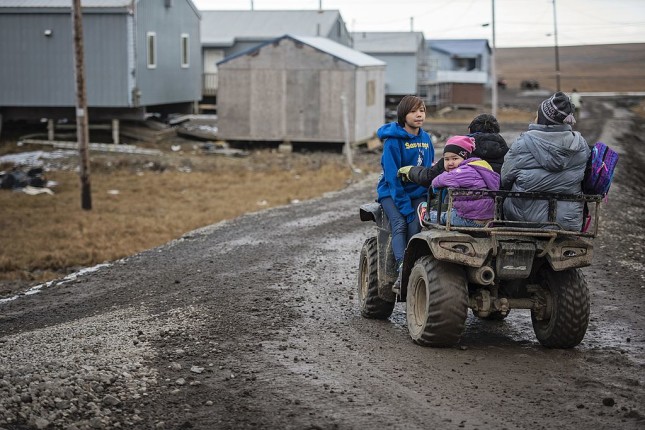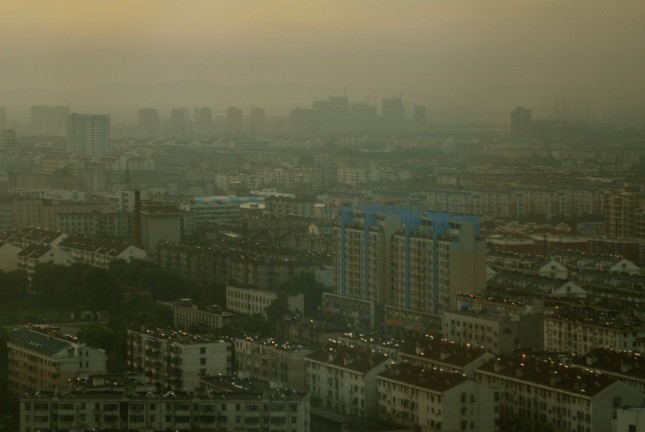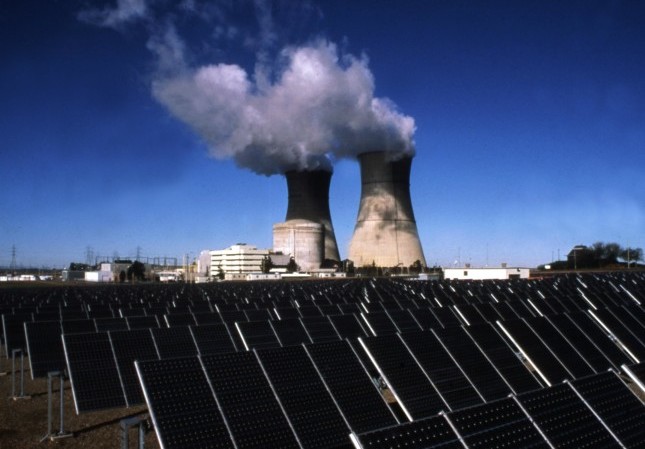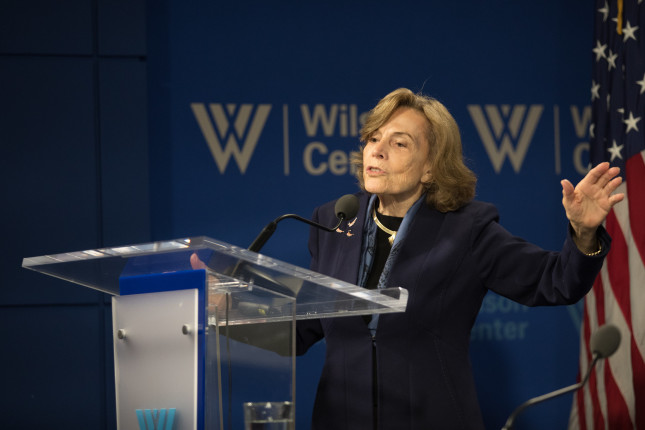Shawn Archbold
Shawn Archbold is a student of the Class of 2020 at the University of California, Irvine studying Environmental Science and Policy.
Before interning at the Wilson Center, Shawn studied environmental policies on food and energy systems and worked as the UCI Chapter Chair with the California Public Interest Research Group as an advocate and activist for clean energy in California, food security, better voting practices, and preventing the use of bee-killing pesticides.
-
Permafrost Melt, Rising Seas, and Coastal Erosion Threaten Arctic Communities
›November 5, 2019 // By Shawn Archbold
“In 1959, he knew it was coming,” said Delbert Pungowiyi, a Yupik native of Savoonga, Alaska, on St. Lawrence Island in the Bering Sea in an interview at the Wilson Center’s 8th Syymposium on the Impacts of an Ice-Diminishing Arctic on Naval and Maritime Operations. “He prepared me my whole life for this. It is a crisis.”
-
China Puts Soil Pollution Under the Spotlight
›
“That ain’t no mountain,” said Jennifer L. Turner, the Director of the Wilson Center’s China Environment Forum, in response to a picture of a pile of phosphogypsum waste just outside a farming village. She moderated a recent event on the development of environmental law and enforcement in China cohosted by the Environmental Law Institute and The Wilson Center. Since 2013, when the picture was taken, the mountain has grown, she said. She put the image up because many people hear about soil pollution, or illegal dumping, and picture something small. “You don’t picture a mountain towering over a village,” Turner said.
-
Could Renewable and Nuclear Energy Be the Key to Fighting Climate Change?
›
“Today we face two existential threats: nuclear annihilation and catastrophic climate change,” writes Daniel Poneman, former Deputy Secretary of the Department of Energy, in his book, Double Jeopardy: Combating Nuclear Terror and Climate Change. “Both stem from human origins. We need to fight both threats aggressively.” At a recent event hosted by the Wilson Center, Poneman discussed his book. While the dangers of nuclear energy are clear from incidents like Fukushima and Chernobyl, Poneman proposes policies that aim to encourage a safe, non-carbon baseload power that responds to the Intergovernmental Panel on Climate Change (IPCC) 2018 report and keeps our global temperature rise below 2 degrees Celsius above pre-industrial levels, per the 2015 Paris Climate Agreement.
-
How Protecting the Antarctic Marine Life Could Help Save the Blue Planet
›
“We are stripping the life away from the blue planet,” said oceanographer, explorer, and author, Sylvia A. Earle. She keynoted a recent event on marine protected areas in Antarctica and the high seas co-hosted by the Wilson Center and The Pew Charitable Trusts with support from the Prince Albert II of Monaco Foundation. “Do we want a planet like Mars?” she said. “Most people would say, ‘I don’t think so. I like to breathe. I like water that falls magically out of the sky. I like having a living planet.’”







